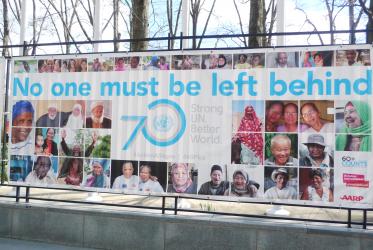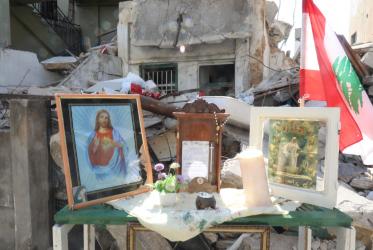Displaying 21 - 31 of 31
Religious leaders as agents of peace in the Americas
02 March 2016
Symposium focuses on religion, violence, extremism
04 February 2016
Killer Robots? Moral questions pervade UN conference
23 April 2015
Momentum builds for ban on nuclear weapons
16 December 2014
Indigenous faith leaders reflect on resilience and climate change
23 September 2014
Serbian Patriarch Irinej addresses UN on peace
10 September 2013






